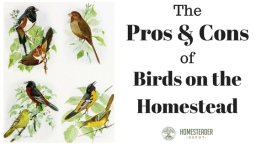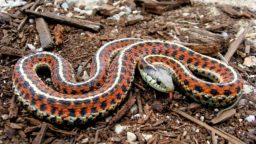If you had to rely on the land around you to sustain and nourish you during a disaster or a crisis, would you know what to look for?
If you own your own property, from a small home in the suburbs to a sprawling homestead in the country, it’s very important to know what grows and lives on this land. Even if you live in an apartment in the city, odds are there’s some wildlife around that you should get to know.
The thing is, no matter how much homesteading–meaning growing, processing, and preserving food, raising livestock, and investing in renewable, off-grid energy sources–we do in our own homes, there’s always the possibility that we can be cut off from our food supply. Even if that food supply is our own. Crops fail, money runs out, grids go down, grocery stores get cleared out and looted, etc.
So if you were faced with a threat to your food supply, would you know where to look to supplement or replace it?
Here are some tips on how to get to know the wild food sources on your homestead or in your area:
Foraging
Foraging for wild food has gained some popularity in the last decade, as people get more and more interested in where their food comes from and keeping it local. And it, obviously, is one of the best ways to get to know edible plants in your area.
If you have a homestead, purchase a book of local wild edibles and walk the whole span of your property to see what you can find. Make this a regular habit, so you can learn to recognize the food sources. Bonus: you’ll probably get some free food out of this!
Hunting, Trapping, and Fishing
If you’re lucky enough to be able to hunt, trap, or fish on your own property, you are truly blessed, and you should take advantage of this now so you can get to know what lives on your property and the best methods to catch them. If you don’t homestead, try to find out what people hunt in your area as well, and–you guessed it–start hunting or laying traps! Again, there’s probably some free food in it, not to mention the development of priceless skills.
Birdwatching
Birdwatching is a popular pastime for many nature lovers. If you are someone who does not normally pay much attention to the avian wildlife around you, however, it’s time to start. If you’re desperate for food, birds will start to look like tiny flying steaks, so pay attention now to get to know what’s available in your area, and again, learn to hunt or trap for these species. You might not want to actually do it, as local laws might prevent the hunting of certain species, but simply getting familiar with what’s local and the methods commonly used for hunting or trapping them will still be a big help.
Wherever you live, it’s vital to know what’s edible all around you. Take some time to familiarize yourself with these food sources so you won’t have to learn the hard way further down the road!
If you enjoyed this, you might also like….



